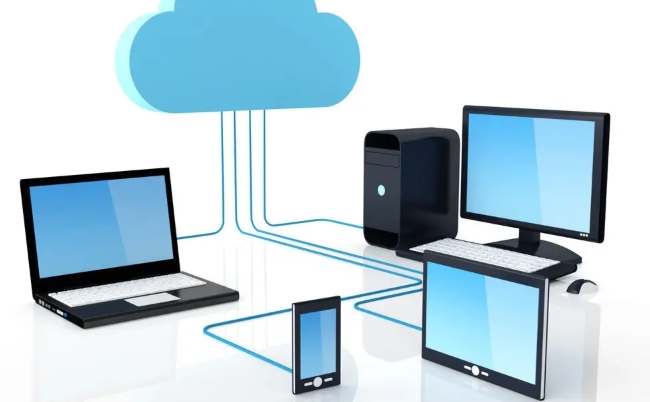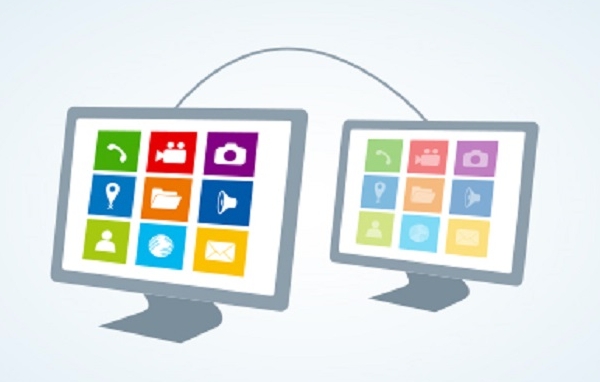Yes, you can connect to a Windows machine from Linux using RDP by following these steps: 1. Install an RDP client like Remmina or xfreerdp; 2. Enable Remote Desktop on the Windows machine through System Properties > Remote settings; 3. Configure firewall and network settings to allow RDP traffic; 4. Create a connection profile in Remmina or use terminal commands with xfreerdp; 5. Troubleshoot common issues like IP mismatches, authentication errors, or firewall blocks if needed.

Yes, you can connect to a Windows machine from Linux using RDP—it’s actually pretty straightforward if the basics are set up right. The key is to use an RDP client on your Linux system and make sure the Windows machine is ready to accept remote connections.

Install an RDP Client
Most Linux distros don’t come with an RDP client pre-installed. The most common one used is Remmina, which is user-friendly and supports multiple protocols including RDP.

To install Remmina on Debian/Ubuntu-based systems:
sudo apt update && sudo apt install remmina
For Fedora or other RPM-based systems:

sudo dnf install remmina
Once installed, open Remmina and create a new connection profile. Choose RDP as the protocol, enter the Windows machine's IP address, username, and password (if needed), then save it for future use.
Other options include rdesktop or xfreerdp, which are more command-line oriented but offer flexibility if you're comfortable with terminal usage.
Enable Remote Desktop on Windows
Before connecting, the Windows machine must be configured to allow incoming RDP connections.
- Open System Properties (you can search for it in the Start menu).
- Go to the Remote tab.
- Under "Remote Desktop", select Allow remote connections to this computer.
- Optionally, check the box to allow connections from computers running any version of Remote Desktop (less secure but useful if compatibility is an issue).
Make sure the Windows Firewall allows RDP traffic—this is usually handled automatically when you enable Remote Desktop, but it’s worth double-checking.
Also, note that some Windows editions like Home do not support incoming RDP connections out of the box. In those cases, you may need third-party tools like Chrome Remote Desktop or alternatives like TeamViewer.
Connect Using the Terminal (Optional)
If you prefer working in the terminal, you can use xfreerdp for a quick connection. A basic command looks like this:
xfreerdp /v:<windows_ip> /u:<username> /p:<password>
Replace <windows_ip></windows_ip>, <username></username>, and <password></password> with the actual values. If you don't want to type the password every time, omit /p:<password></password> and it will prompt you securely.
This method is handy for scripting or advanced users who want more control over the connection settings.
You can also pass extra flags like resolution size (/size:w:h), clipboard sharing ( clipboard), or drive redirection (/drive:sharename,/path/to/folder) to enhance your experience.
Troubleshooting Common Issues
Sometimes things don’t work right away. Here are a few common problems and how to fix them:
- Can’t reach the Windows machine? Double-check the IP address and make sure both machines are on the same network unless you’ve set up port forwarding or a VPN.
- Connection refused? Make sure Remote Desktop is enabled on Windows and that no firewall rules are blocking port 3389.
- Authentication errors? Try changing the security option in Remmina to “RDP” instead of “NLA” (Network Level Authentication), especially if the Windows machine isn’t part of a domain.
- Blank screen after login? This sometimes happens if the Windows session is locked or not properly initialized. Restarting the Windows machine often helps.
That should cover the essentials. Once everything is set up, connecting via RDP from Linux becomes just a click or quick command away. It’s not complicated, but getting all the pieces aligned correctly matters.
The above is the detailed content of How to connect to Windows from Linux using RDP?. For more information, please follow other related articles on the PHP Chinese website!

Hot AI Tools

Undress AI Tool
Undress images for free

Undresser.AI Undress
AI-powered app for creating realistic nude photos

AI Clothes Remover
Online AI tool for removing clothes from photos.

Clothoff.io
AI clothes remover

Video Face Swap
Swap faces in any video effortlessly with our completely free AI face swap tool!

Hot Article

Hot Tools

Notepad++7.3.1
Easy-to-use and free code editor

SublimeText3 Chinese version
Chinese version, very easy to use

Zend Studio 13.0.1
Powerful PHP integrated development environment

Dreamweaver CS6
Visual web development tools

SublimeText3 Mac version
God-level code editing software (SublimeText3)
 How to transfer an Adobe Acrobat license to a new computer?
Jul 04, 2025 am 12:01 AM
How to transfer an Adobe Acrobat license to a new computer?
Jul 04, 2025 am 12:01 AM
To transfer the Adobe Acrobat license to a new computer, you must first log out on the old device and release the activation permission, and then complete the activation with the new computer login account. The specific steps are: 1. Open Acrobat on the old computer and click on the avatar or "Help" > "Log out" to log out; 2. Download and install Acrobat for the new computer and log in with the original account to automatically identify the license; 3. If the activation fails, check the network, clear the cache, unbind the old device through the Adobe account page, or contact customer service to solve the problem. The key point is to ensure that the old device has been logged out, clear the local cache and update the online device list before the migration can be completed smoothly.
 How to create a custom brush in Photoshop
Jul 08, 2025 am 01:01 AM
How to create a custom brush in Photoshop
Jul 08, 2025 am 01:01 AM
The steps to create a custom brush in Photoshop are as follows: 1. Select a pattern with clear edges and suitable for brushes, such as hand-painted textures or photo parts, and adjust it to the appropriate size; 2. Use the "Magic Wand Tool" or "Quick Selection Tool" to remove the background to ensure that the pattern is in an independent selection; 3. Create a basic brush through "Edit > Define Brush Presets"; 4. Adjust the parameters such as "Shape Dynamic", "Scatter", "Text" and "Transfer" in the "Brush" panel to make the strokes more natural; 5. Finally, click "Save As Brush" to save as a .abr file for convenience of subsequent use and sharing.
 How to use the quick selection tool in Photoshop
Jul 06, 2025 am 12:01 AM
How to use the quick selection tool in Photoshop
Jul 06, 2025 am 12:01 AM
Photoshop's quick selection tool is suitable for selecting areas with similar colors and clear boundaries. The usage methods include: 1. Find and activate the tool, right-click or long-press to switch or press the shortcut key W to ensure that the layer is unlocked; 2. Adjust the brush size, combine the Alt or Option key to switch the selection mode, Shift key to add selection, and improve accuracy through the option bar setting sampling method; 3. Use the "Select the Subject" function to assist in selection, and then manually optimize edge details, especially suitable for portraits or product images.
 How to recover a corrupted AutoCAD file?
Jul 09, 2025 am 01:16 AM
How to recover a corrupted AutoCAD file?
Jul 09, 2025 am 01:16 AM
When AutoCAD file is corrupted, you can take the following steps to try to restore: 1. Check the automatic backup of the file, check whether there is a .bak or .sv$ file in the folder where the original .dwg file is located, and rename the .bak file to .dwg to open it; 2. Use the RECOVER command to try to repair the file, and if it fails, use the -OPEN command to open the file for partial recovery; 3. Use third-party tools such as DataNumenDWGRepair, RecoveryToolboxforDWG, etc. to deal with seriously damaged files. To prevent future damage, you should save regularly and use "Save As" to refresh the file structure, keep the software updated, avoid saving through network drives, enable automatic save and set up
 How to remove password protection from a PDF in Adobe Acrobat?
Jul 05, 2025 am 12:36 AM
How to remove password protection from a PDF in Adobe Acrobat?
Jul 05, 2025 am 12:36 AM
To remove PDF password protection, use Adobe AcrobatPro and have the document owner password. The steps include: 1. Open Adobe AcrobatPro and select a password-protected PDF file; 2. Enter the correct owner password; 3. Go to "Tools" > "Protection" > "Encryption" > "Remove Security"; 4. Click "OK" in the pop-up window to confirm the removal. If AcrobatPro is not available, you can ask others for assistance or use third-party decryption tools, but you need to pay attention to privacy risks. Common problems include invalid password, grayed out security settings, and prompting for passwords after removal. The solution is to check password input, try to convert file formats, or update software versions. If it cannot be resolved, please contact A
 How to fix remote desktop connection issues
Jul 08, 2025 am 01:03 AM
How to fix remote desktop connection issues
Jul 08, 2025 am 01:03 AM
Remote Desktop connection problems can be checked through the following steps: 1. Check the network and firewall settings to ensure that the TCP3389 port is open; 2. Confirm that the remote desktop function is enabled and supported by non-home version systems; 3. Verify user permissions and belong to the "RemoteDesktopUsers" group or administrator; 4. Handle black screen or lag, adjust the display options or restart the remote computer. Check them one by one in order, and most problems can be solved.
 How to get Photoshop for free
Jul 12, 2025 am 12:34 AM
How to get Photoshop for free
Jul 12, 2025 am 12:34 AM
Adobe Photoshop does not have a permanent free version, but can be legally used in the following ways: 1. The official website provides a 7-day free trial, complete functions but automatic renewal is required; 2. Use a simplified version based on the browser (Beta), which supports basic editing functions; 3. Students or teachers can obtain a full-featured version through the school education plan; 4. Consider alternative software such as GIMP, Photopea, Krita or Canva Pixlr to meet daily needs. The above methods can meet the needs of different users and ensure legal and compliant use.
 How to use the magnetic lasso tool in Photoshop
Jul 04, 2025 am 01:00 AM
How to use the magnetic lasso tool in Photoshop
Jul 04, 2025 am 01:00 AM
The magnetic lasso tool is suitable for images with obvious edge contrast. The key points include: 1. Use the shortcut key L or select the tool from the tool group. After clicking the starting point along the edge of the object, slowly move the mouse, and the tool will automatically absorb and add anchor points; 2. In terms of parameter settings, the width is recommended to be set to 10~30, and the edge contrast is default. The higher the frequency, the more anchor points; 3. In actual application, other tools can be replaced in the blurred edges. Zooming the image will help with accurate selection. If necessary, the anchor points can be adjusted manually. Mastering these skills can effectively improve the efficiency of the selection.






